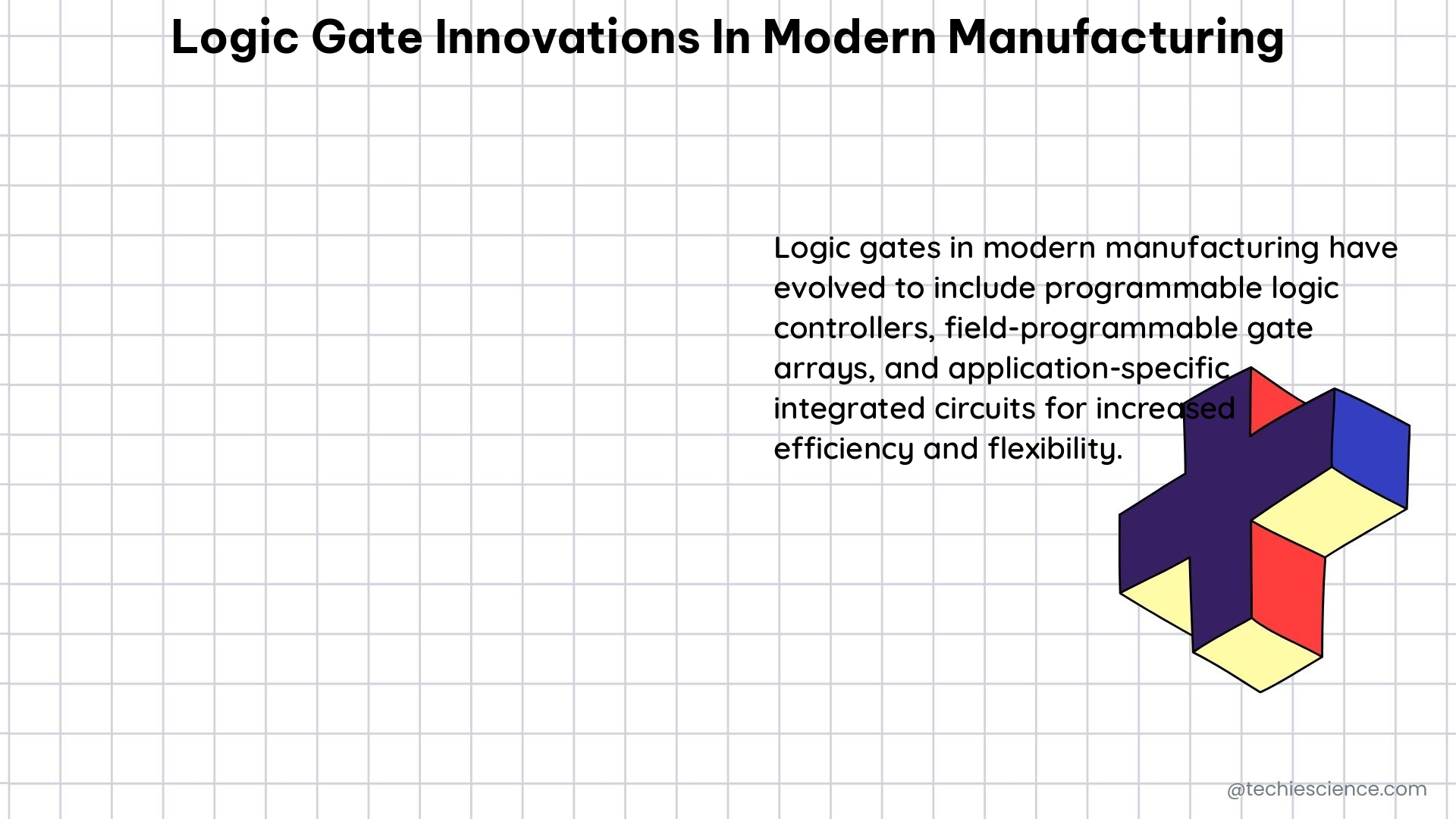In the rapidly evolving world of electronics and semiconductor technology, the advancements in logic gate innovations have played a pivotal role in transforming modern manufacturing processes. These innovations, driven by the convergence of semiconductor technology and the principles of Industry 4.0, have significantly enhanced performance, reduced power consumption, and improved overall manufacturing efficiency.
Enhancing Performance with FinFET Technology
One of the most notable advancements in logic gate technology is the emergence of FinFET (Fin Field-Effect Transistor) technology. This innovative transistor design has revolutionized the performance of modern logic gates, offering a significant improvement over their predecessors.
Intel’s 10nm FinFET Technology
Intel’s 10nm FinFET technology is a prime example of this performance enhancement. Compared to their previous 22nm technology, the 10nm FinFET technology delivers a remarkable 2.7x increase in performance. This improvement is achieved through the unique FinFET structure, which allows for better control of the electric field and reduced leakage current, resulting in higher switching speeds and improved overall efficiency.
Reduced Power Consumption with FinFET
In addition to the performance boost, FinFET technology also offers substantial reductions in power consumption. Intel’s 10nm FinFET technology, for instance, boasts a 50% reduction in power consumption compared to their 22nm technology. This significant decrease in power requirements is a crucial factor in modern manufacturing, where energy efficiency and sustainability are increasingly important considerations.
Embracing Industry 4.0 for Manufacturing Efficiency

The adoption of Industry 4.0 principles, such as smart manufacturing and the Industrial Internet of Things (IIoT), has played a pivotal role in enhancing manufacturing efficiency. These advancements have enabled manufacturers to optimize their processes, reduce waste, and improve overall productivity.
Digital Transformations in Manufacturing
A study by McKinsey found that full digital transformations in manufacturing typically take two to three years from initial baseline to profit-and-loss impact. This transformation involves the integration of advanced technologies, data analytics, and intelligent automation, all of which contribute to the optimization of manufacturing processes.
Comprehensive Data Collection and Analysis
In discrete manufacturing, the increasing prevalence of machine-internal sensors has led to a surge in data availability. However, the challenge lies in effectively leveraging this data to drive continuous improvement. The value of holistic and comprehensive data storage has only recently become understood, and some discrete plants are now adopting a complete data-recording routine.
Harnessing AI and Machine Learning for Predictive Maintenance
The integration of AI and machine learning technologies has revolutionized the way manufacturers approach maintenance and asset management. These advanced analytical tools enable predictive maintenance, allowing for the early detection of potential failures and the implementation of proactive measures.
Predictive Maintenance in Action
ABB, a leading industrial automation company, can predict with 95% accuracy when one of its wind turbines is about to fail. Siemens, another industry giant, utilizes smart sensors to detect subtle changes in vibration or energy use that may indicate imminent failure in older motors and transmissions.
Adopting Advanced Technologies for Competitive Edge
While the adoption of advanced technologies, such as digital twins, AR/VR systems, and 3D printing, is still relatively low in the manufacturing sector, the potential benefits of these innovations are significant.
Slow Adoption of Advanced Technologies
A survey by MAPI (Manufacturers Alliance for Productivity and Innovation) found that 60% of manufacturers have yet to implement or consider implementing digital-twin applications, 51% have yet to implement AR/VR systems, and 26% have yet to implement 3D printing. This slow adoption rate highlights the need for increased awareness and investment in these transformative technologies.
Unlocking the Potential of Advanced Technologies
Digital twins, for instance, can provide a virtual representation of a physical asset, enabling manufacturers to simulate and optimize their processes, reduce downtime, and improve overall efficiency. AR/VR systems can enhance training, maintenance, and remote collaboration, while 3D printing can revolutionize the production of custom parts and prototypes.
Conclusion
The logic gate innovations in modern manufacturing are a testament to the rapid advancements in semiconductor technology and the adoption of Industry 4.0 principles. From the performance-enhancing FinFET technology to the efficiency-boosting integration of AI and machine learning, these innovations are transforming the way manufacturers operate.
As the industry continues to evolve, the adoption of advanced technologies, such as digital twins, AR/VR systems, and 3D printing, will become increasingly crucial for maintaining a competitive edge. By embracing these innovations and leveraging the power of data-driven decision-making, manufacturers can unlock new levels of performance, sustainability, and profitability.
References:
- A Manufacturers’ Guide to Generating Value at Scale with IIoT
- Industry 4.0: A Realistic Approach for Practical Times
- The Manufacturing Evolution Report
- New Approach to the Analysis of Manufacturing Processes with the Support of Data Science
- Leveraging industrial IoT and advanced technologies for digital transformation

The lambdageeks.com Core SME Team is a group of experienced subject matter experts from diverse scientific and technical fields including Physics, Chemistry, Technology,Electronics & Electrical Engineering, Automotive, Mechanical Engineering. Our team collaborates to create high-quality, well-researched articles on a wide range of science and technology topics for the lambdageeks.com website.
All Our Senior SME are having more than 7 Years of experience in the respective fields . They are either Working Industry Professionals or assocaited With different Universities. Refer Our Authors Page to get to know About our Core SMEs.